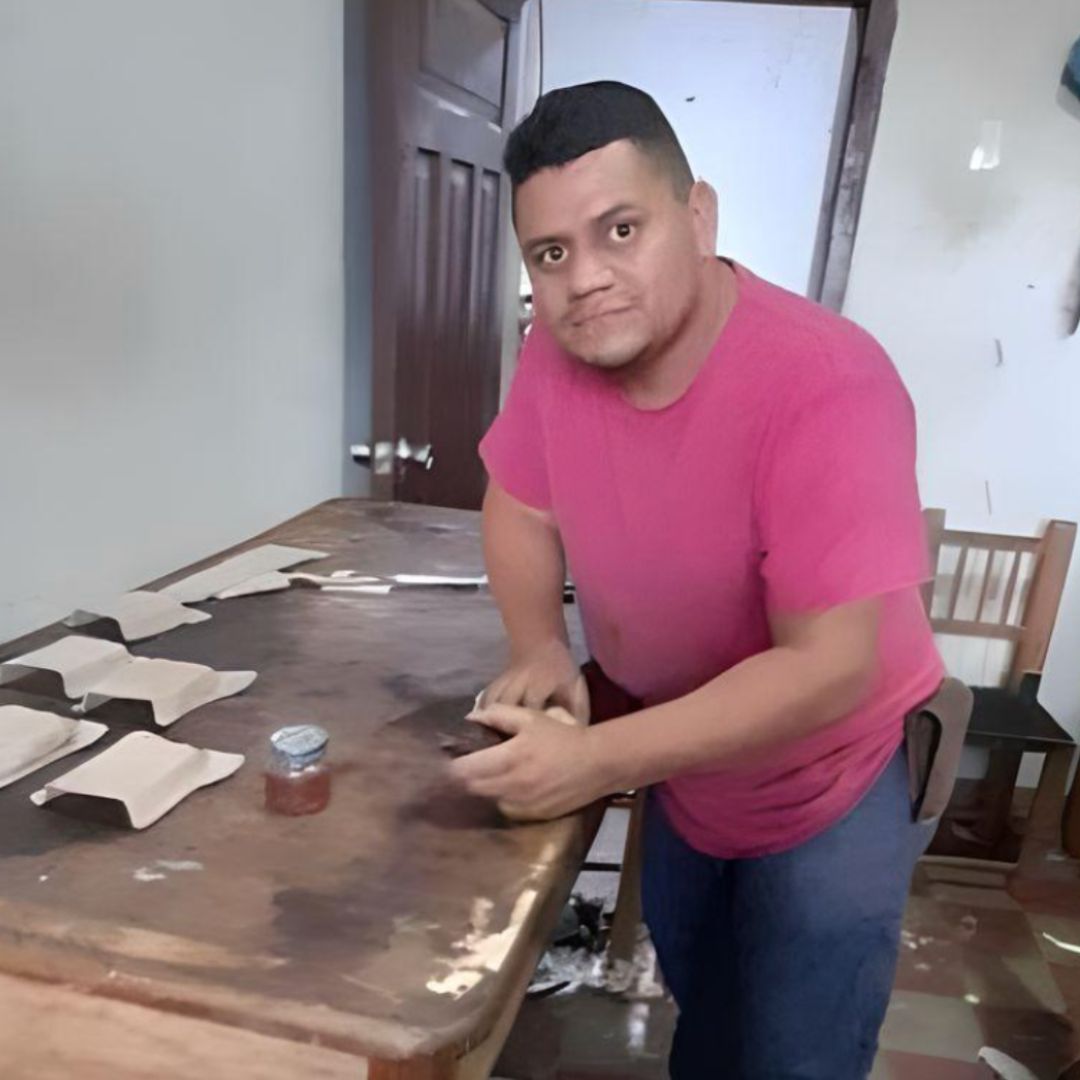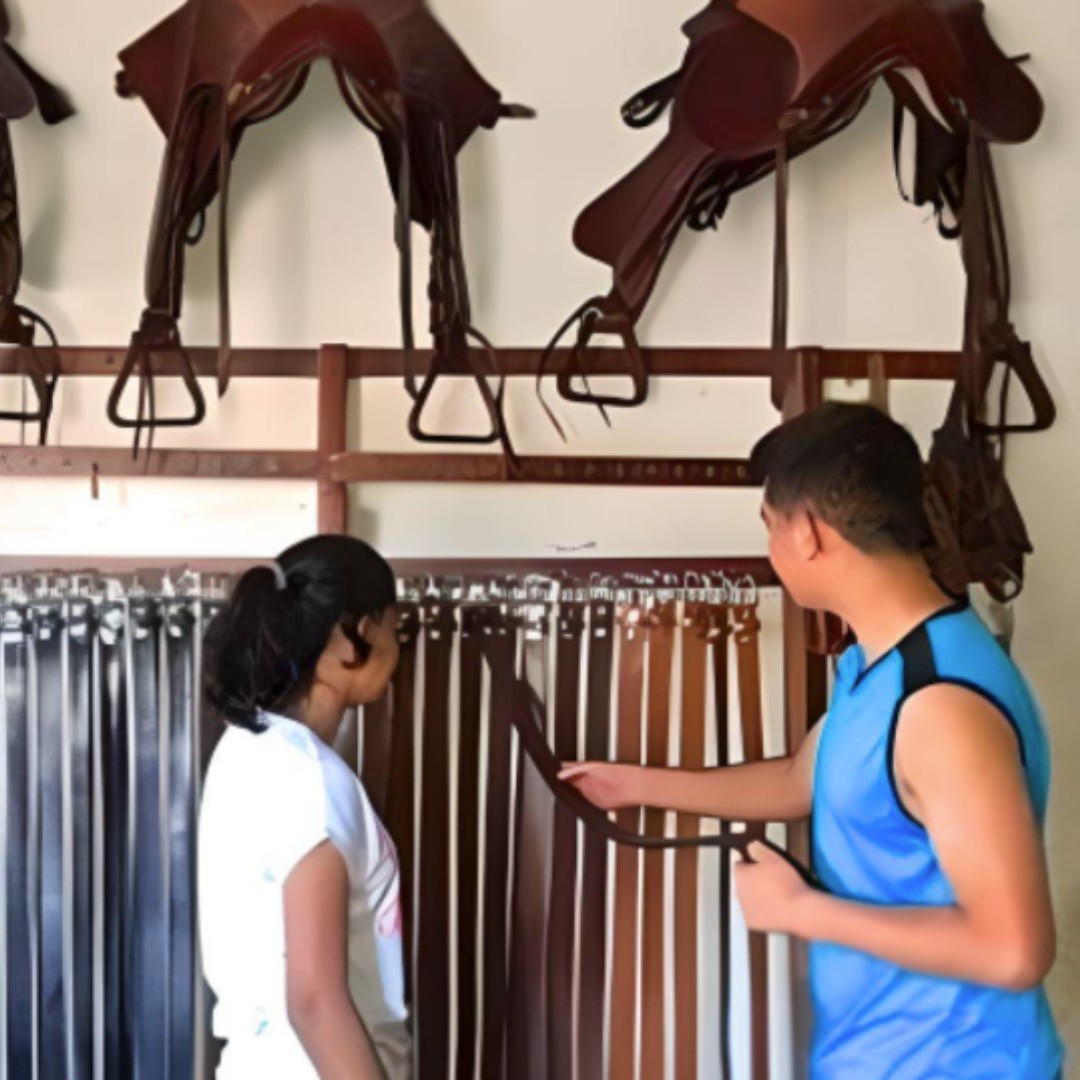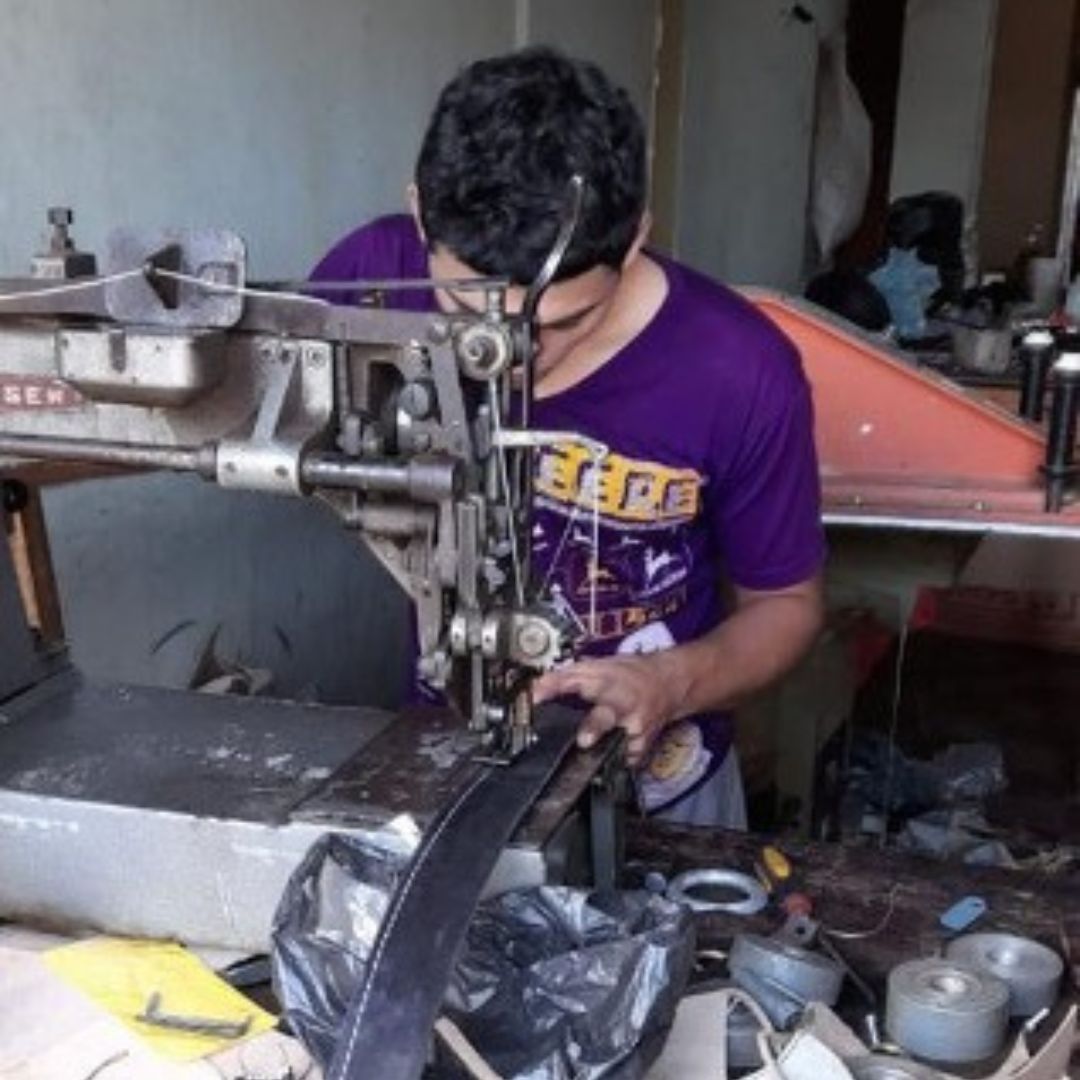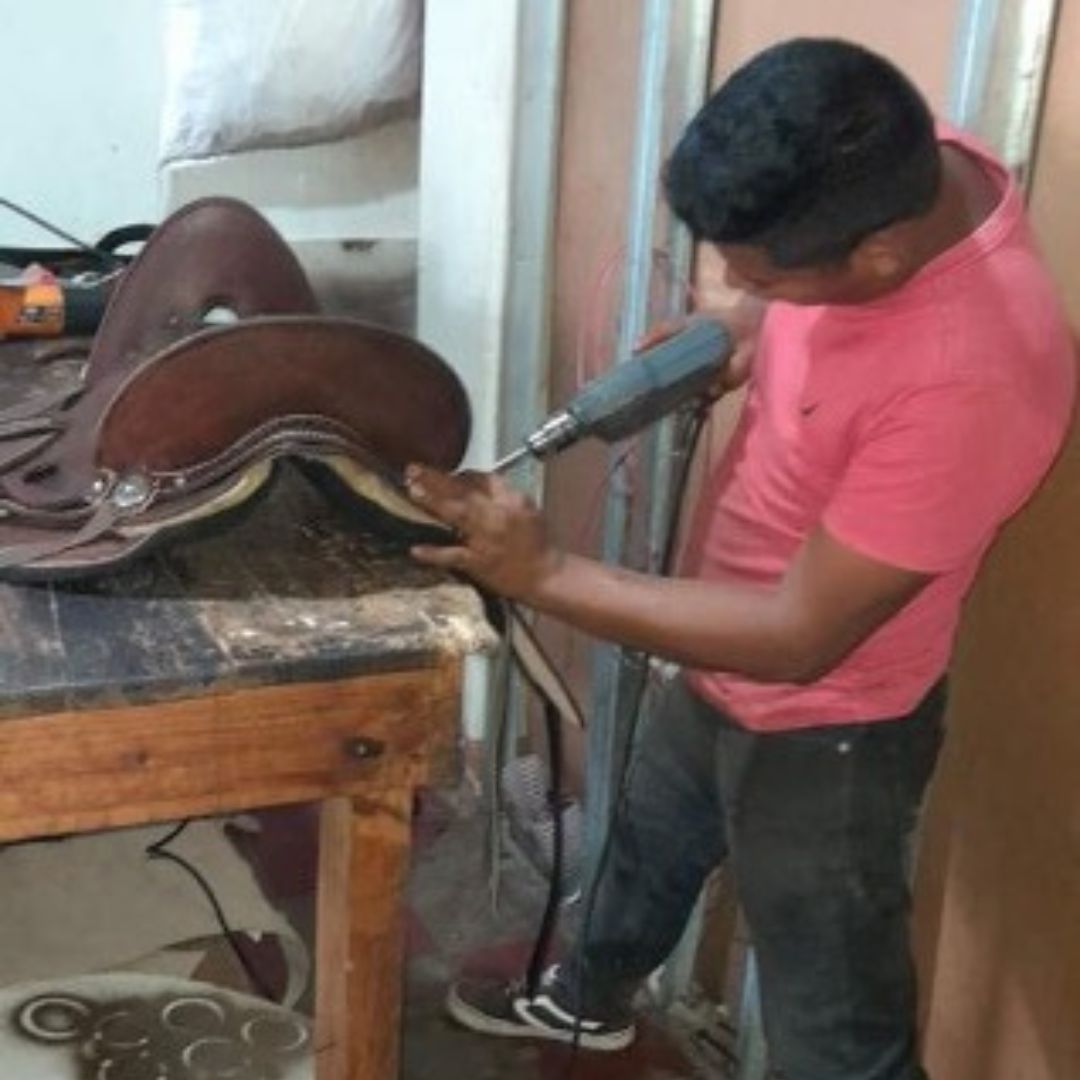Crafting a Better Future with the Family Business


For this craftsman, leather wasn’t just the family business: it was a way out of poverty.
The smell of leather fills the workshop, which looks like the set of an old western film. Belts and saddles hang from the walls, every inch meticulously crafted and decorated by the skilled workers positioned behind sewing machines and craft tables. The store, fittingly, named “Cuero y Más” (Leather and More), occupies a small footprint in the mountainous city of Catacamas, Honduras, four hours northeast of the nation’s capital city.
For store owner Ever Sierra, leather was the family business. Both his father and his grandfather were skilled leatherworkers who passed their trade down to Ever over the years. This skill would ultimately serve as a lifeline for Ever during difficult times ahead.
Providing for his Growing Family
Long before starting his own business, Ever traveled 161 miles from Sabana Grande to the mountain city of Catacamas, where he began attending the National University of Agriculture.
Before Ever could graduate, he and his wife welcomed their first child into the world. To provide for the needs of his growing family, Ever started his own small business, making leather trinkets for his teachers and college friends.
The business provided some much-needed income for his family, but producing and selling more leather products required funding Ever did not have. With a growing family to support and rent to pay, Ever needed a way to expand his business.


Expanding his Business Through Partners Worldwide
Things changed when Ever joined the Partners Worldwide network. Diaconia Nacional, through the support of Partners’ funding, provided Ever with a loan, which enabled him to purchase the raw materials and machinery needed to manufacture on a larger scale while minimizing the cost of production.
Today, Ever’s business employs eight people and produces saddles, wallets, belts, cell phone holders, sandals, and more. These products are distributed throughout the department of Olancho, while his more elaborate creations—saddles and other livestock accessories—are being purchased throughout Honduras, Guatemala, and El Salvador.
The blessings don’t stop there. After years of dreaming to expand his workshop, Ever has finally purchased the land upon which he will construct his new facility.
“I am very grateful to God for those blessings, to Diaconia Nacional for supporting us in our dreams and to Partners Worldwide for believing in us, even when I doubted that I could achieve it.”
Today, Ever and his wife live in Catacamas with their four children.